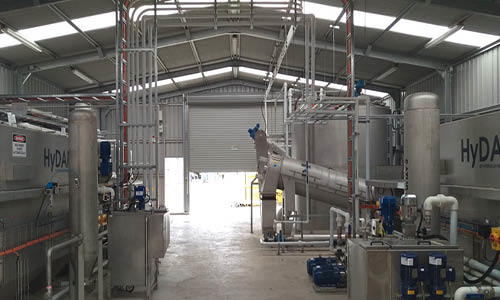The Real Cost of Wastewater Disposal
As food and beverage businesses seek to remain competitive they modernise their production lines, increasing output and squeezing out every last bit of product. However, often there is little consideration for the outdated wastewater treatment plant that is the real money pit on site.
And it is not hard to see why investment at ‘the back end’ of the factory is so often neglected.
When making decisions on where to invest, updating to modern and efficient processing and packaging equipment has a simple calculation for the return on investment. The ‘numbers’ in these equations stand up to scrutiny, with no real grey areas, and either they fall within the required ROI time frame or they don’t.
With wastewater treatment plants, it is not so simple. Rather than making money, wastewater treatment & compliance costs money. But does it have to cost so much?
Wastewater discharge has some obvious costs associated with the amount of wastewater that is discharged and the amount of waste that is within the water. Other costs that are incurred include labour for operation and maintenance, power, compressed air, water, chemicals and polymer, and sludge disposal. To justify an investment in new and more efficient wastewater treatment infrastructure it is essential that you weigh up all the operational and capital costs, as well as future expansion needs.
This is where the services of an industry specific, experienced wastewater specialist company are essential.
For example, sludge management is one key area where investment in new processes and/or technologies can not only show a clear ROI, but a fast one.
With innovative new chemical regimes available that reduce the amount of sludge produced without any compromise on performance, as well as new world class sludge dewatering technologies available, food and beverage businesses can see a significant reduction in the amount of sludge removed from site.

The HUBER Q-PRESS: a unique inclined sludge dewatering machine
The reduction in the quantity of sludge offers one level of savings. Disposing of the sludge as a solid instead of a liquid another. The combination of the two can see savings in disposal costs of more than 80%.
About the Hydroflux Group
The Hydroflux Group comprises seven companies based in Australia and the UK, providing design and build, equipment, processes and operational services in water and wastewater treatment. Hydroflux Industrial specialises in industrial wastewater treatment including designing and constructing plants and supplying equipment across all sectors. Hydroflux Industrial is a wholly owned subsidiary of the Hydroflux Group.
Visit Hydroflux at foodpro at stand Q40 on level 1 to chat with one of their Wastewater Treatment and Sludge Dewatering Specialists.
-
Stay up to date with the latest news, industry insights and foodpro updates.
- Subscribe


